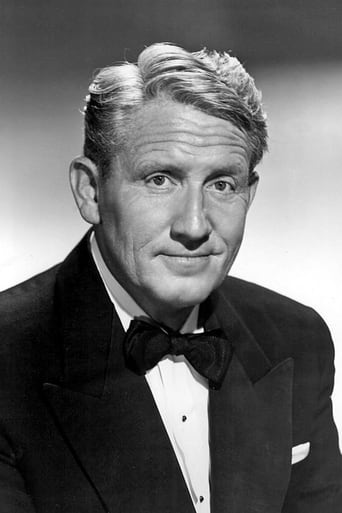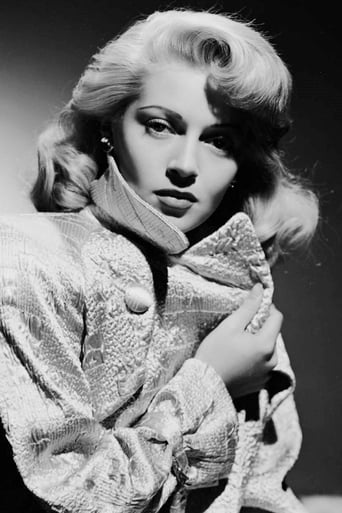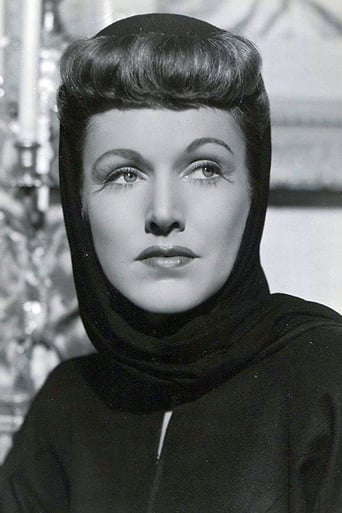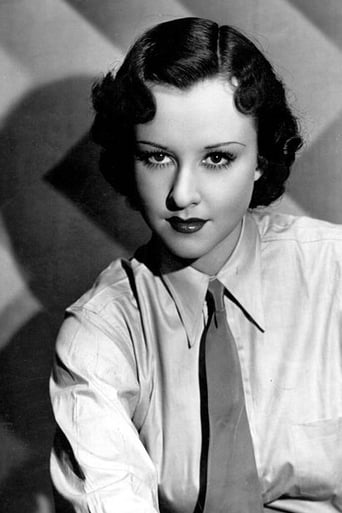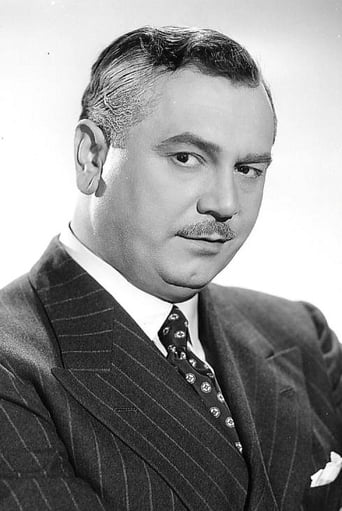Evengyny
Thanks for the memories!
Pacionsbo
Absolutely Fantastic
Marva
It is an exhilarating, distressing, funny and profound film, with one of the more memorable film scores in years,
Fleur
Actress is magnificent and exudes a hypnotic screen presence in this affecting drama.
jhkp
It's been many years since I read the Sinclair Lewis novel. I could be wrong, but I seem to remember some interesting observations about a middle-aged, upper-middle class man, confronting a woman of a younger generation and a different social and economic class, in the 1940's.In that rapidly changing world, she's more liberated, more independent than the girls he grew up with. There's a generation gap between men of Cass's era and young women like Jinny, in the postwar world. It's a reflection of the way the country had changed, over the course of a few decades.Obviously, if they had gotten any of this into the film, it would have been far more interesting than the soap opera that emerged. Jinny just seems to be bored and restless because she's immature and shallow, and Cass just seems to lack understanding of her predicament because he's older and set in his ways. Still, Cass Timberlane, as one of MGM's superior factory products, can almost be enjoyed for the production values alone: gorgeous black and white cinematography, stunning women's costumes, detailed sets, nice use of locations, expert use of rear projection (lush, atmospheric shots of Scott and Turner on a NYC penthouse terrace), etc. As good a film as money can buy. And as good a cast.Was Lana Turner a good actress? I don't know - but I like watching her. Not just because she's pretty (and here, she's very pretty) - she's also extremely charming - especially in the early scenes - and there really is a good deal of chemistry between her and Spencer Tracy. (Jennifer Jones, first choice for the part, turned it down). Tracy is of course, excellent. And immensely likable. The romance between them is always believable, because he is such a charismatic, charming, somewhat devilish, interesting, intelligent, and apparently loving person, how could she not love him? And she is so beautiful, delightful, and seemingly sensible, how could he not fall head over heels for her? Both seem like down-to-earth people, so it's not hard to understand how they relate to one another. And also why they clash.George Sidney - who usually directed fluff like "Holiday In Mexico", and "Anchors Aweigh", tries his hand at something serious, here, and while I don't know why he got this big project that probably should have gone to Clarence Brown, or Cukor, he does a pretty good job. Just scratches the dramatic surface, though, unfortunately. He does better in the first hour, which, as usual, is the lighter half.Later on, it just reads like magazine fiction.
blanche-2
The combination of Lana Turner and Spencer Tracy is an interesting one in "Cass Timberlane," a 1947 film based on a novel by Sinclair Lewis. I have a sneaking suspicion the emphasis in the book was a bit different, but maybe I'm wrong.This story concerns a judge (Tracy) who falls for the beautiful witness (Turner) in an accident case and ends up marrying her. She's from the wrong part of town. The two are in love, but she doesn't like the town they're living in and wants something more exciting. The judge seems wedded to his good old boys network; what he doesn't know is that his friendship is being used to help his friends cover up illegalities in wartime contracts their company received.The story is fairly predictable. One of the reviewers here didn't understand the attraction Tracy had for Turner. Well, she says right up front that he reminds her of her father. I think he represented security and real love to her. Turner and Tracy are likable, and the acting is uniformly good. Zachary Scott is on hand as a crooked lawyer who falls for Turner. Albert Dekker and Mary Astor have supporting roles.This might have been a stronger film with the emphasis elsewhere, possibly on the subplot of the Wargate company. As it is, it's a little too formula.
FilmOtaku
"Cass Timberlane" is a film about unexpected love and the choices you have to make when you're in love. Directed by George Sidney and starring Spencer Tracy as Cass, a judge in small-town Minnesota who is part of the middle-aged country club set. He's generally living a comfortable and content existence when he meets Virginia (Lana Turner), a woman who is at first a witness for a small claims case and later runs into. They strike up a friendship and then a romance, culminating in their marriage. When their child dies while being born, Virginia finds herself more and more restless and spending more time with Cass' best friend, the younger and handsome attorney Bradd (Zachary Scott). The country club set sees them getting closer, and collectively send Bradd to New York under the guise that he is being transferred for his job, just as Cass is starting to wonder if something is up between Bradd and Virginia. Virginia convinces him that there is nothing going on, and eventually Cass offers to move them to New York so she isn't so bored. Cass is then forced to choose between the love he has for his town and his job, and his love for his wife and her needs.Spencer Tracy is excellent in this film, as he is in all of his films, and Lana Turner is also quite good. The scenes between she and Zachary Scott have enough heat in them to make us wonder if they are guilty of adultery as well. The story is a pretty straightforward drama, nothing special, but it is a good script and offers up enough conflict to satisfy without resorting to overload and ridiculous emotion. This is an average film that was well worth looking up. 6/10 --Shelly
moonspinner55
Spencer Tracy is a hard-nosed small town judge who meets feisty, attractive young Lana Turner in his courtroom one day and finds himself smitten; they date and he soon proposes, but there's an immediate problem: Lana's from the poor side of town and doesn't have the judge's class (she bowls and plays baseball) while all the judge's high society friends mingle at cocktail parties and gossip on the phone. From the way the film is written and directed, we are to assume Lana is really benefiting from this marriage, but she's never as happy as she was in those early scenes of "poverty" and, worse, she never returns to her roots, just goes around in circles finding the judge's money, power and friends a chore. The script is actually rather condescending in its approach to Turner's character; it has been written by people with money who have no idea what the "poor side of town" even looks like, and the filmmakers can't even grasp the fact that Turner (and maybe even judge Tracy) would be much happier away from all the champagne and telephone gossips and get involved in some low-income fun (like bowling!). Instead of focusing on the class-issue, they throw another man in Lana's path, which is the oldest issue in the book. This movie doesn't have any courage, and only the early courting scenes have spark. Tracy and Turner do all they can, but it's a lost cause.

